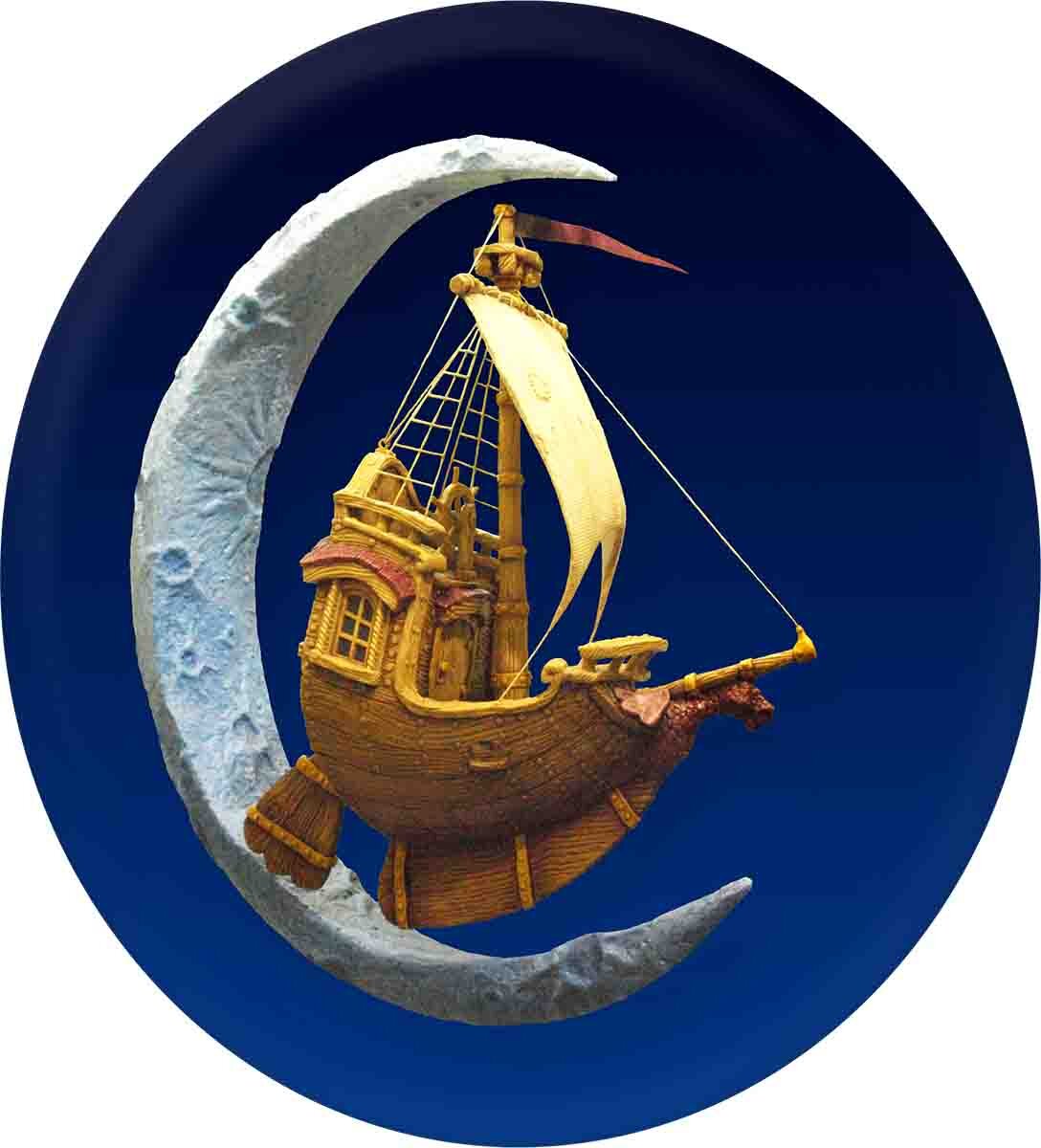The dinosaur desk makes extensive use of the CNC plasma cutter. Dan’s concept sketch shows a dinosaur fossil supporting a glass tabletop.
Our reference material for this particular project included a child’s plastic T-rex model kit. The instructions for the model proved very helpful when building the files for the individual bones. The vectors for the bones were created in EnRoute and, amazingly, fit on a single 4' x 8' x 1/2" thick steel. We ended up with about 312 pounds of dinosaur pieces — it was quite the pile of parts!
After we had sorted them and arranged them in order of size it was time to start welding. We used a 1" steel rod — putting it though our hydraulic press to bend it to the right shape then arranged the plasma cut parts over the rod. The easiest way to align the parts was to build the dino flat on his back.
Once the rib cage and tail of the T-rex were welded up we used the chain hoist to lift it upright. An adjustable stand at each end held things steady while we lined things up. From here on in we would weld up the various smaller assemblies on the bench and then fasten them to the large piece permanently.
After a little grinding the table is ready for its glass top.
For good measure we made a matching coffee table — it measures 20" x 28" x 17" tall.
It's welded solid and plenty heavy - perfect for putting one's feet up when relaxing!
Once the steel has been allowed to patina with rust and the glass top is in place the desk is ready for our client. The desk weighs in at a hefty 360 pounds.











